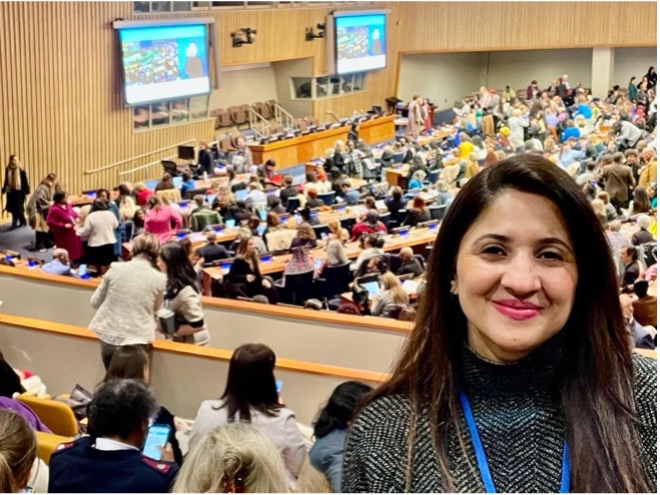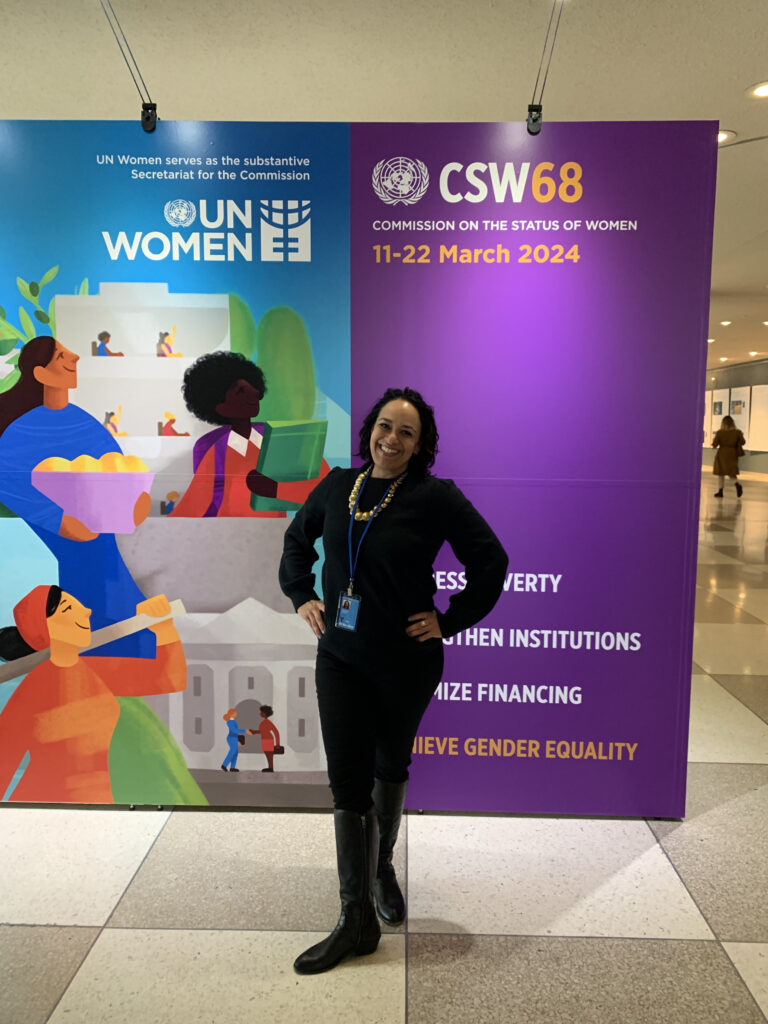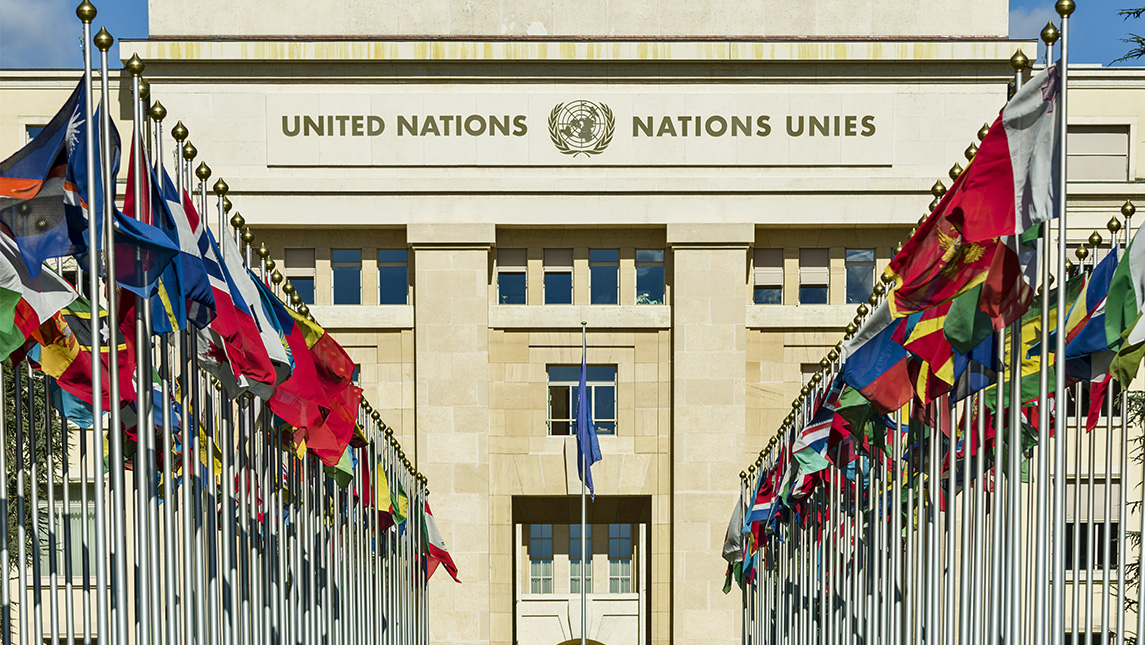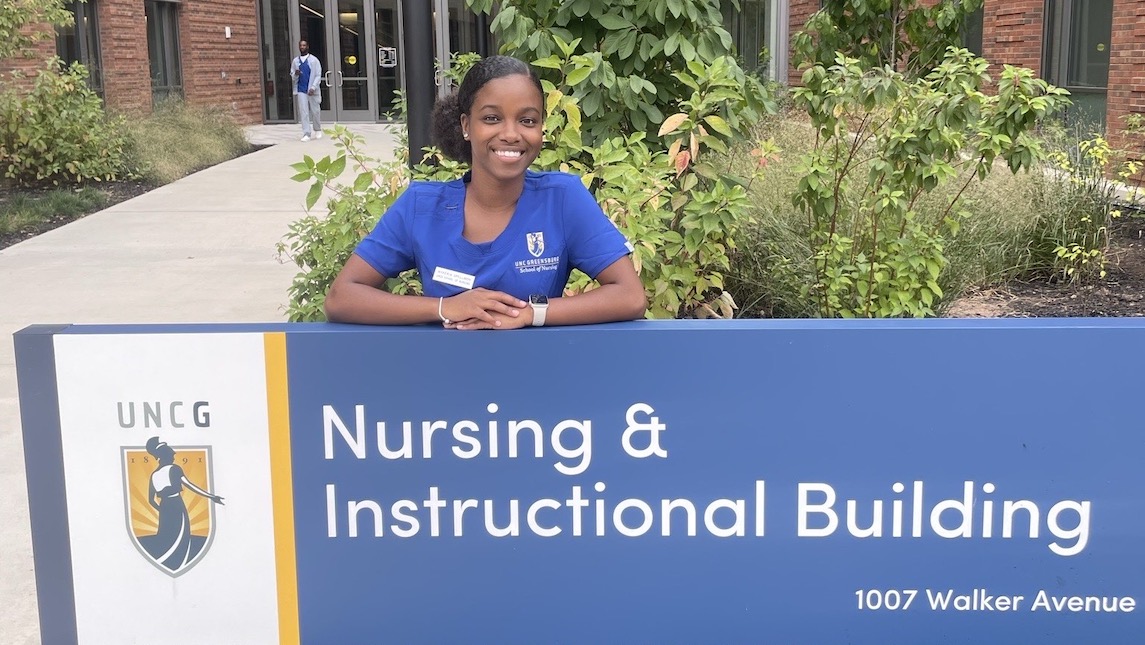Two UNC Greensboro students earned the honor of attending the United Nations 68th Annual Session of the Commission on the Status of Women. The meeting is the largest gathering on gender equality and women’s empowerment, held at the United Nations headquarters in New York City.
Doctoral student Nida Qamar and graduate student Cathy Knowles ’98 both attended the session in March 2024, having been invited through different organizations.
Both students are within the School of Health and Human Sciences. Qamar is working on her doctorate in community health education and was chosen as a delegate for the United Nations Association of the United States of America. Knowles, who is working on her masters of art degree in peace and conflict studies, was selected by the Women’s International League for Peace.
AN EMPOWERING OPPORTUNITY

Qamar’s research interest is in identifying and preventing human trafficking among foreign-born people in the U.S.
“Sessions such as ‘Innovative Partnerships to End Trafficking in Women and Girls,’ and ‘Collaborative Efforts in Technology and Policy to Fight Human Trafficking” provided invaluable insights into the complexities of this issue,” Qamar says. “The discussions highlighted the crucial role of technology in aiding law enforcement and other service providers efforts while emphasizing the need for collaborative approaches and policy reform to combat human trafficking effectively.”
This trip was the first time Qamar has ever been to the United Nations headquarters.
“It was very interesting and empowering,” she says. “It was amazing to see experts from all across the world come together for these sessions.”
Originally from Pakistan, Qamar earned both her bachelor’s degree and master’s degree abroad and has lived all over the world, including in Lebanon, UK, Italy, Fiji Islands, and Thailand, but it was UNCG’s Department of Public Health Education that brought her to Greensboro.
“I am interested in working in the community with refugees and immigrants, so when I was searching for a PhD program, I came across UNCG’s community health education program,” says Qamar. “I spoke with the faculty, and they were amazing. They were very knowledgeable and responsive. It was exactly what I wanted. North Carolina is also a hub for refugee resettlement agencies, so it worked out perfectly.”
COMING FULL CIRCLE

Knowles says going to the United Nations was a “dream come true.” She earned her undergraduate degree from UNCG in 1998 and is now working on her graduate degree in peace and conflict studies, with a focus on sustainable peace and justice. She spent the last 20+ years working at non-profit organizations in New York, Los Angeles, and now the Community Foundation of Greater Greensboro.
“I got into my career because I am a strong administrator, but my heart has always been in field work,” she says. “UNCG started me off in that area, and now I feel like I’m coming full circle with some childhood dreams. Standing in front of all the flags at the United Nations, having a security pass, getting to see all of the artwork, and seeing all of the people from around the world, it was very transformative.”
Knowles was chosen for the visit with the help of UNCG Assistant Professor Marcia Hale.
“Dr. Hale met with me and listened to what my interests and passions are. She then forwarded me this opportunity and wrote one of the best recommendation letters I’ve seen in 24 years as a professional. It was so thoughtful,” she says.
During the five-day trip, Knowles was able to attend 17 different sessions related to women and gender issues, including the first Indigenous-led session.
“It was a fully female panel, hosted by Canada and Mexico. They ranged from doctors and lawyers to ministers and talked about issues like recognizing Indigenous sciences to the crisis of missing and murdered indigenous women, girls, and two-spirit people. I knew about the crisis, but I didn’t know much, which is why I’ve chosen it as my research topic.”
DIGNITY AT THE FOREFRONT
Knowles would like to apply her learnings to issues facing women, girls and gender-diverse people. It was a guest speaker in her peace and conflict studies program that shifted her perspective.
“He talked about how, in every interaction that he had with someone in the field as a peace builder, he keeps dignity at the forefront of every single conversation,” Knowles says. “So, everything that he is doing in his practice is about paying attention to the humanity of the other people, and I thought that was a wonderful way to navigate work.”
The trip has helped to inform Knowles’ graduate studies, not just by introducing her to new research opportunities, but also from hearing about how people are working on local solutions to real world issues.
“It was one of the best experiences of my life, and it only happened because I’m enrolled in this small department at UNCG with a very dedicated and compassionate faculty,” says Knowles.
Story by Avery Craine Powell, University Communications
Photography courtesy of Cathy Knowles and Nida Qamar
Feature photo courtesy of adobe.stock.com




